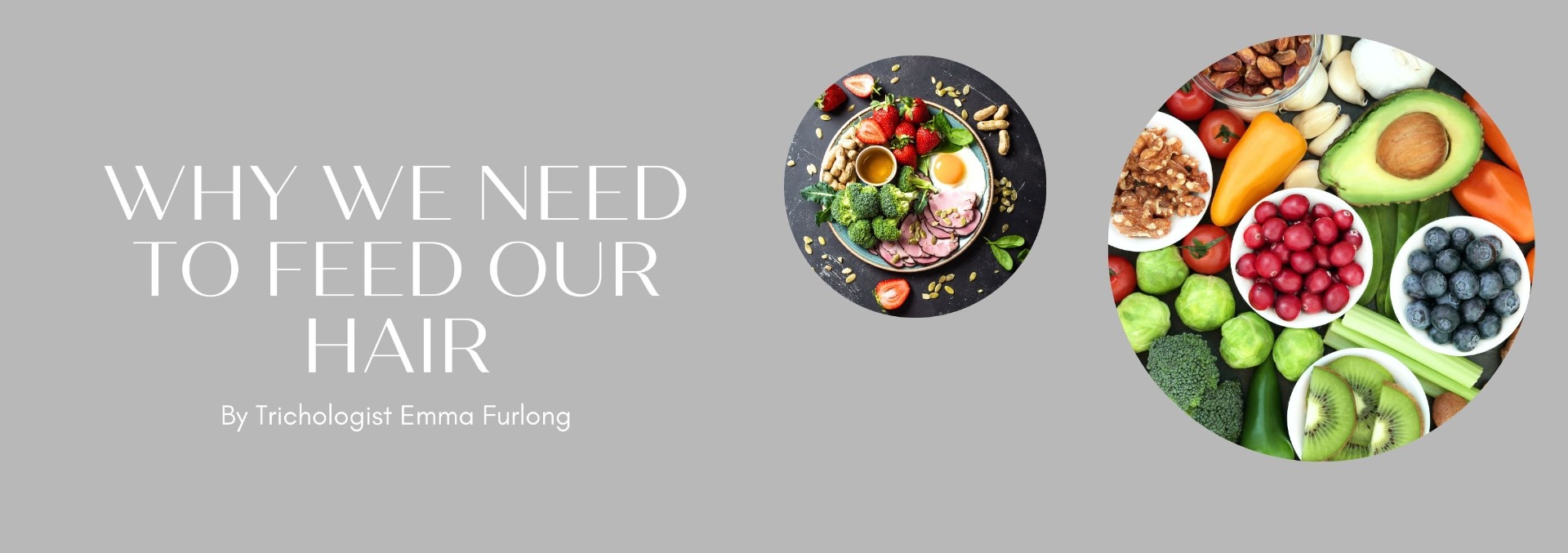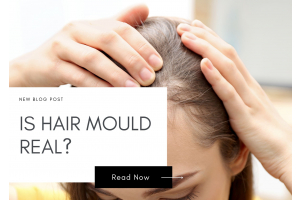
Our dietary intake and achieving the right balance for us as individuals is essential for a healthy lifestyle. But did you know that what we eat, and drink, can also impact our hair and our follicle’s ability to function normally?
Our diet is an important element of our hairs ability to grow and to be healthy and strong. We often see patients in clinic who are looking to stimulate hair growth, stabilise loss or want healthier hair, so what do we need to eat to help ‘feed’ our hair?
As a hair loss specialist, I look at all aspects of a patient’s lifestyle to determine the very best treatment plan for them and one of the main specific dietary elements I explore is protein, the building block of hair.
Hair is built from protein, so it makes sense that we need to have sufficient protein intake to give our hair the ‘raw materials’ it needs to be strong, healthy and to keep growing. In general terms the body needs protein to function and survive and the best source of this is through the food we eat. However, the body cannot store protein long term for future use, as it does with other nutrients, so we need to consume sufficient protein every day to ensure the body gets enough to not only function correctly but to nourish our hair. Our body’s mission to keep everything in ‘balance’ means that it prioritises rations of nutrients, vitamins, and minerals from our food intake; one of the statements I use on repeat in clinic is that our hair is the last to be invited to the party and the first to be asked to leave. If we are not getting enough of the required elements within our diet the hair will be negatively affected (1).
Why, you ask, is protein so important and what does it do specifically for our hair? Let’s take a look:
- Acts as a carrier- for example, haemoglobin is a protein that carries oxygen, and our hair follicles need oxygen to function efficiently.
- To keep our internal store cupboard stocked - for example, ferritin is a protein that stores iron and iron is an essential ingredient for hair growth
- Acts as a communication system - to receive and send signals and hormones for uptake and delivery by cells, getting the messages to the right place
- Our building blocks - tissues, bones, organs and hair are all built from proteins
- Heads up the team – proteins need other nutrients to function and vice versa, without the protein element some of the essentials for hair growth simply have no foundation to work from
So, how much protein do we need to ensure everything in our body gets the amount it needs, or that we have enough to ensure our hair gets its fair share? Public Health England recommend that the Reference Nutrient Intake (RNI) level of protein for adult men is an average of 55g protein per day, with a recommendation of 45g protein for adult women. As we all come in very different shapes and sizes, some specialists feel that basing your intake in line with your weight is more efficient in ensuring you get the right reference amount.
With this in mind, we can look at the European Food Safety Authority (EFSA) and the World Health Organisation (WHO) minimum reference daily amounts:
- 0.66g of protein per kg of body weight in children (up to 18 years old)
- 0.83g of protein per kg of body weight for adults (19 years and over)
We now know how important protein is but what else do we need to be aware of in our diet to help ensure our hair is getting its share of the food it needs?
Hair follicles are highly active and sensitive. In fact, hair follicle cells are among the most rapidly dividing cells in your body, so it’s no surprise that nutrient deficiencies can negatively affect hair growth (1).
Let’s take a closer look at the other main nutrients that help support healthy hair growth, Iron, Vitamin D and Zinc.
Iron
Iron deficiency is the most common nutrient deficiency in the world and is often one of the first checks a medical professional will consider when assessing hair loss.
Researchers are still studying how iron deficiency causes hair loss, but it appears to disrupt hair growth by diverting iron stores in the hair follicle to other areas of the body (1), where is it considered more important to overall ‘balance’. It is common in clinic to observe positive hair responses in clients who have required iron supplementation, over time. It is also worth noting that, like with all supplements, over-supplementing and/or taking iron supplements when it is not required can have a negative impact on hair condition and growth.
- Good sources of Iron include (2)
- iron-fortified bread and breakfast cereal
- nuts and seeds
- dried fruit
- wholemeal pasta and bread
- legumes — such as mixed beans, baked beans, lentils and chickpeas
- dark leafy green vegetables — such as spinach, silver beet and broccoli
- tofu
Vitamin D
Vitamin D plays an important role in hair growth and the health of your hair follicles so is another initial check when patient present hair loss concerns.
Research has shown that vitamin D levels are lower in people with some hair loss conditions (1) and found that taking Vit D supplements to increase the blood level of the nutrient promoted growth in those considered deficient. The need to take advantage of those few and far between naturally occurring sunny days takes a new angle!
Good sources of Vit D include (3)
- oily fish – such as salmon, sardines, herring and mackerel
- red meat
- liver (avoid liver if you are pregnant)
- egg yolks
- fortified foods – such as some fat spreads and breakfast cereals
Zinc
Zinc is a mineral that plays important roles in immune function, protein synthesis, cellular division, and more (1). Zinc is considered necessary for hair follicle function and helps protect against hair follicle shrinkage. It also helps promote hair follicle recovery.
Good sources of zinc include (4)
- bread and breakfast cereal
- nuts and seeds
- oysters
- red meat
- poultry
- seafood
- dairy products
Other nutrients that may affect hair loss and can contribute to healthy hair growth include:
Copper
Biotin
Vitamin B12
Folate
Riboflavin
If you think that you may be experiencing hair loss due to a nutrient deficiency, talk with a hair loss or medical professional. They may suggest you get a blood test to assess your micronutrient levels and rule out deficiencies, it is also worth noting that there may be a combination of elements contributing to poor hair health and/or growth.
We always look at the ‘bigger’ picture in clinic and without professional advice it can be difficult to ascertain if you are eating the right balance of food and amounts to ‘feed your hair’. A good balanced diet which contains all the elements discussed in this blog will certainly mean you have most bases covered. In terms of supplementation, as already noted, it is only useful for hair growth if you are deficient in the element you are supplementing. I hear many clients say, well I thought it wouldn’t hurt to take extra, but if the body doesn’t need it, and has no ability to store it, then it can have a negative impact on the way the body processes that vital nutrient.
So, there you have it, some supporting information on why we ask about your diet when we talk about hair loss. A full consultation with one of our hair loss specialists would give a personal overview and recommendations but hopefully this article has helped give a little insight.





